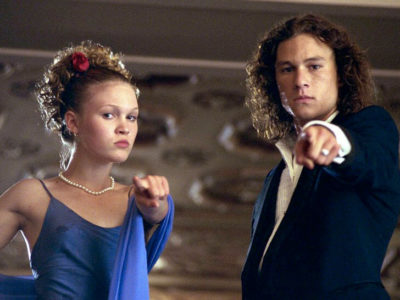Alexandria Sese > Sophomore > English > University of Illinois at Chicago, Photo by Catherine Finsness > Sophomore > Pyschology > The George Washington University
Overachievers are fueled by different motivations. Some want an edge when they step into the competitive job market. Others succumb to parental pressures.
Others like Doris Bravo, now a first year Art History Ph.D. student at the University of Texas at Austin, wanted the self-affirmation and recognition.
When Bravo was an undergraduate in the University of Chicago, she found herself in the same position as many overachievers are now in: in the middle of almost everything. She was president of her house and university Orientation Aid; a university program facilitates freshman orientations. On top of that, Bravo played soccer, and took a full course load for a double major in Spanish Literature and Latin American studies. The great thing was, she felt that she was being true to herself. “As long as I can remember I’ve been an overachiever,” Bravo says.
“I liked having the responsibility and other knowing I can be dependable,” she admits when asked why she saw herself as an overachiever.
While she recalled no one pressured her into pushing herself to her limits, Bravo said she also wanted to achieve as much as possible to gain her parents’ recognition. It wasn’t until her sophomore year that she realized being an overachiever wasn’t as fulfilling as she hoped it would be.
As a sophomore, Bravo started seeing her counselor after losing sleep from the anxiety of being overwhelmed with her responsibilities. She even had fears of developing ulcers from the stress after her cousin, another stressed honors student, contracted them. During her counseling sessions, she discovered the most important lesson in college: keeping her life balanced.
“It’s like performing a circus nobody’s watching,” she realized. “[Overachieving] has to be completely self-motivated; you have to want it. I think waiting for other people to praise you is just a waste.” From then, she slowly accepted the fact that her parents’ recognition for her achievements may never come.
Part of balancing her lifestyle was accepting that she can’t do everything. She realized that in her intense efforts to prove she is dependable, she was taking on too many responsibilities she ultimately couldn’t handle. “You have to be a little more selective with what you get involved with so you can dedicate your time to it,” she now believes. Bravo learned to delegate tasks to other people involved in her extracurriculars and to sometimes just say no.
Ten years later, and still considering herself an intense student, Bravo admits to still doing her best to understand how to balance her life. “Checking things off a list doesn’t matter,” she said. “It’s all about quality and being able to understand things.” And to Bravo, that’s where the accomplishments and self-recognition come from.


















